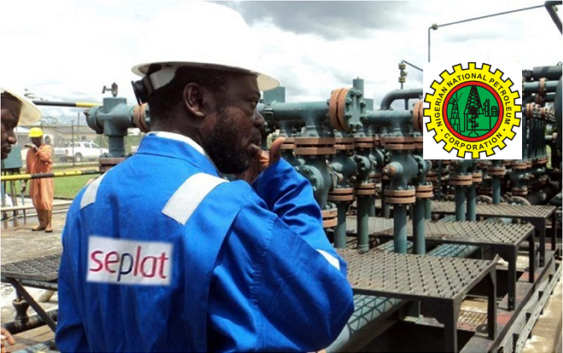- SCZONE SIGNED DEAL WITH CHINESE INVESTORS FOR IRON PRODUCTS PROJECTS IN EGYPT
- WESTPROP HOLDING LIMITED SET TO CONSTRUCT US$174M PIPELINE PROJECT IN ZIMBABWE
- FORMER TOGO PLAYER ADEBAYOR LAUNCH SOCIAL HOUSING PROJECT IN TOGO
- AMANSIE WEST DISTRICT ROAD PROJECT BEGINS IN GHANA
- LAGOS TO CALABAR HIGWAY PROJECT: WHY IT CANT BE ACHIEVED
SEPLAT PARTNERS WITH NNPC TO RAISE US$700m GAS DEVELOPMENT FUNDS

Seplat teams up with NNPC to improve gas production in Nigeria.
Seplat Petroleum Development Company recently announced that it is partnering with Nigeria National Petroleum Corporation (NNPC); to raise US$700 million for a gas development project.
The US$700 million is for a joint gas project in Imo state; which will tremendously help Nigeria to reduce its dependency on oil.
According to A.B.C Orjiako, the Co-founder and Chairman of Seplat; the project includes the development of the Assa North and Ohaji South gas fields. The project termed Assa North-Ohaji (ANOH) South is however just one of the corporation’s seven projects which will boost gas production and infrastructure development in Nigeria – Africa’s biggest producer of crude.
The plant will be developed, built and operated by by ANOH Gas Processing Company (owned by Seplat) and the Nigerian Gas Company (a unit of the NNPC). It will begin production by the last quarter of 2020 and its first supply will be in 2021.
To raise the US$700m fund, Seplat Petroleum and NNPC will provide 60 percent of the funds as equity, while ANOH Gas Processing will source the balance as debt. Already Seplat and NNPC have each made a contribution of US$100 million in equity.
The plant will have an initial capacity of 300 million standard cubic feet per day. It will also process wet gas from the unitized upstream fields at OML 53 and OML 21.
About Seplat
Seplat focuses majorly on gas investments, drilling and acquisitions, so as to boost gas output required to meet electricity demand. Currently, it supplies about 30 percent of the gas used for Nigeria’s power generation.
Nine (9) years ago Seplat produced 90 million standard cubic feet (scuf) of gas per day, but its current gas production stands at 525 million scuf.
Seplat have listing in both the London and Nigerian stock exchange.
Problem of power generation in Nigeria
While speaking at a visit in London, Orijiakor noted that the Power sector in Nigeria will flourish only when government let go of its tight control on power generation.
In 2013, Nigeria experienced series of blackouts leading to selling of parts of its state electricity firm in a privatisation. The privatisation aimed at improving power supply while attracting billions of dollars in investments. However, those goals were never achieved as the majority of the plants sold were gas-fired and operated below capacity owing to inadequate gas supply.
Orjiako said Nigeria possess one of the highest cost per kilowatt of power. The bulk of electricity produced comes from diesel generators which is expensive and unreliable. The also country produces less than 10 percent of its requirement.

